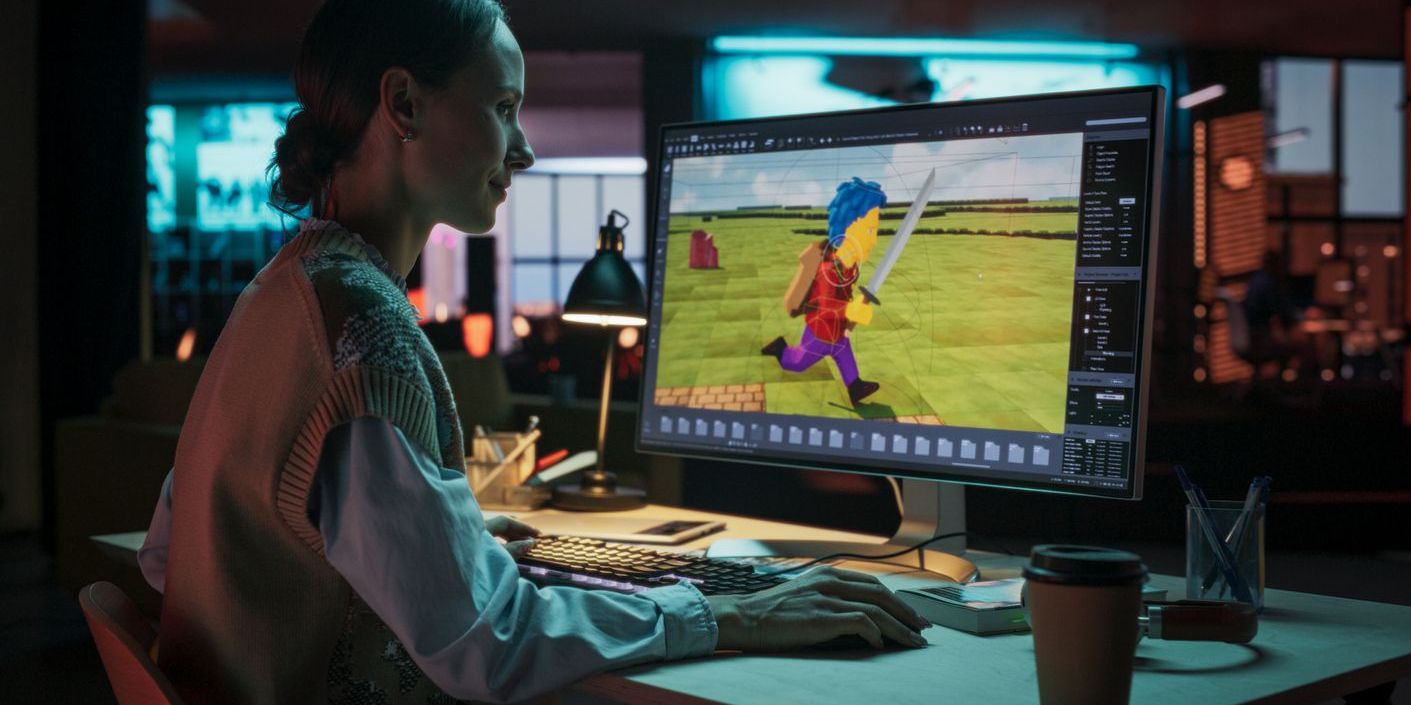What is a Game Compliance Tester?
Game compliance testers are responsible for verifying that video games meet the legal, technical, and regulatory standards required by platform holders like Sony, Microsoft, and Nintendo as well as government agencies and rating boards across different regions. Their main role is to test games to make sure they follow the rules and policies set by these organizations before the games are released. This helps protect developers from financial risk and ensures that games launch on time.
What does a Game Compliance Tester do?

Duties and Responsibilities
By performing a range of tasks, game compliance testers help prevent costly delays and maintain a high-quality gaming experience for players worldwide. Their work includes:
- Platform Compliance Testing – Verifying that the game follows submission guidelines to avoid certification failures.
- Functionality and Stability Checks – Ensuring the game runs smoothly without crashes, freezes, incorrect error messages, or improper handling of user accounts and data that could lead to rejection.
- Localization and Content Compliance – Checking that language, cultural references, and content adhere to regional laws and standards.
- Accessibility and Security Testing – Ensuring features like text readability, audio cues, controller remapping, and data security meet platform guidelines.
- Bug Reporting and Documentation – Identifying, documenting, and communicating compliance issues to developers for resolution.
Different Types of Game Compliance Testers
While many game compliance testers have comprehensive knowledge in all of the areas described above, some choose to specialize:
- Platform Compliance Testers focus on ensuring the game meets certification requirements set by platform holders like PlayStation (TRC), Xbox (XR), Nintendo (Lot Check), Steam, iOS, and Android. They check for issues like crashes, improper data management, and controller functionality.
- Regulatory Compliance Testers ensure the game adheres to regional laws, data privacy regulations (General Data Protection Regulation – GDPR in the EU, Children’s Online Privacy Protection Act – COPPA in the US), and content restrictions (violence, language, nudity, gambling, loot boxes). They work closely with legal teams to prevent violations that could result in fines or bans.
- Localization Compliance Testers verify that text, voiceovers, user interface (UI) elements, and images are correctly translated and culturally appropriate. They ensure that age ratings and region-specific content comply with local regulations and platform requirements, as laid out by organizations such as the Entertainment Software Rating Board (ESRB) in the US, Canada, and Mexico; Pan European Games Information (PEGI) in the EU; and Computer Entertainment Rating Organization (CERO) in Japan.
- Accessibility Compliance Testers check whether the game meets accessibility standards, such as colorblind modes, text-to-speech support, subtle readability, and adaptive controller compatibility. They ensure the game meets accessibility standards like WCAG (Web Content Accessibility Guidelines) and platform-specific requirements.
- Security Compliance Testers focus on network functionality, server connectivity, data privacy, and cybersecurity. They test the game for online multiplayer safety and protection against hacking or cheating.
Game compliance testers have distinct personalities. Think you might match up? Take the free career test to find out if game compliance tester is one of your top career matches. Take the free test now Learn more about the career test
What is the workplace of a Game Compliance Tester like?
Game compliance testers can work for various organizations within the gaming industry. These are among their most common employers:
- Game Development Studios – Large studios (e.g., Ubisoft, EA, Activision, Naughty Dog) and indie developers hire compliance testers to ensure their games meet platform and legal requirements before release.
- Game Publishers – Companies like Sony, Microsoft, Nintendo, and Square Enix have in-house compliance teams that test games before they are approved for their respective platforms.
- Third-Party QA and Testing Firms – Outsourced quality assurance companies (e.g., Keywords Studios, Testronic, Lionbridge Gaming, Quantic Lab) provide compliance testing services for multiple developers and publishers.
- Certification and Regulatory Bodies – Some testers work with organizations like the ESRB (Entertainment Software Rating Board), PEGI (Pan European Game Information), or CERO (Computer Entertainment Rating Board) to verify content compliance.
- Platform Holders and Digital Distribution Stores – Companies like Sony (PlayStation), Microsoft (Xbox), Nintendo, Valve (Steam), Google Play, and Apple App Store employ compliance testers to enforce their certification guidelines.
- Mobile and Cloud Gaming Services – Mobile gaming companies like Supercell, Zynga, or Tencent and cloud gaming platforms like Nvidia GeForce Now or Xbox Cloud Gaming need compliance testers to ensure smooth performance and regulatory adherence.
The work environment of a game compliance tester tends to vary from employer to employer.
Testers at game studios or game publishing companies typically work in an office environment with a dedicated quality assurance (QA) department. They use test kits (specialized versions of gaming consoles) to check for compliance issues. Collaboration with developers, designers, and other QA team members is common. Workspaces are often equipped with multiple monitors, debugging tools, and bug-tracking software.
Game compliance testers employed by third-party QA and testing labs work on multiple games for different clients. This setting is structured, with strict testing protocols and non-disclosure agreements (NDAs) to protect game content. Testers working for platform certification teams operate in highly secure environments.
Regardless of location, the job can be fast-paced, especially as deadlines for game launches approach.
Freelancers and contract workers frequently work remotely, using secure remote access to test games on game platforms or developer-provider hardware. Online communication with teams happens via Slack, Zoom, or other collaboration tools.
Frequently Asked Questions
Video Game-Related Careers and Degrees
Careers
- Game Artist
- Game Audio Engineer
- Game Compatibility Tester
- Game Compliance Tester
- Game Designer
- Game Functional Tester
- Game Level Designer
- Game Localization Tester
- Game Software Regression Tester
- Game Tester
- Game UX Tester
- Multiplayer Game Tester
- Narrative Designer
- Video Game Creative Director
- Video Game Producer
- Web Game Developer
Degrees
Game Compliance Testers are also known as:
Video Game Compliance Tester
Regulatory Game Tester
Game Platform Compliance Analyst
Game Certification Specialist